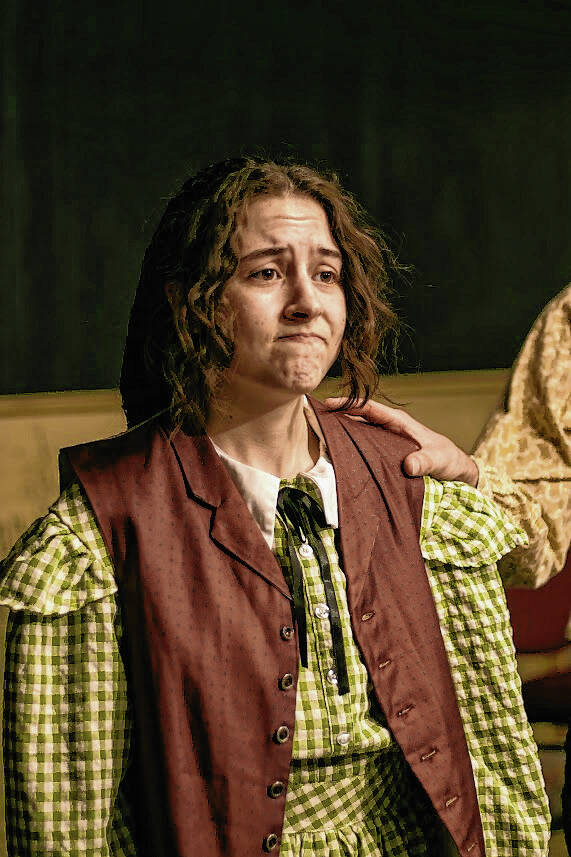
Rachel Hoke plays the role of Jo March during a rehearsal scene of “Little Women.”
Photo provided | Kathryn Baylor Photography
Forget the fact that nearly 150 years separated Louisa May Alcott’s publishing of the classic novel “Little Women” and a 10-year-old Rachel Hoke finding a heartfelt connection in 2015 with the main character of Jo March.
“She reminded me a lot of myself,” Hoke said. “She is everything that I wanted to be then. She’s ambitious, she wants to be a writer, and she isn’t afraid to break a few of the social norms. She doesn’t really care about fitting in because she just wants to be successful for her family.
“And I can relate to that a lot, especially now that I’ve just graduated high school and am moving on to college.”
Fittingly, Hoke will play the strong-willed, temperamental and opinionated Jo in Passion for Acting Theatre Company’s dinner theater presentation of “Little Women” opening Friday at Willow Leaves of Hope, 326 Jackson St. in Hope. The troupe regularly has presented works with strong female characters.
“This is a very feminist story and Louisa May Alcott was a feminist as well as an abolitionist,” Hoke said. “… She had a very unconventional childhood, and I think that’s one of the reasons she grew up to write such an amazing story.”
Troupe leaders such as co-directors Connie Kiviniemi-Baylor and Kathryn Baylor, her daughter, figured now to be a good time for such a production because they knew they had the right mix for the four sisters who are the focus of the coming-of-age story following them to adulthood. Interestingly, publishers in 1868 forced Alcott, who never married, to include a love interest named Laurie (played by Alex Baylor).
“So times have changed — at least I believe so, thankfully,” said Kiviniemi-Baylor.
One careful tidbit is tweaked in this presentation, according to Baylor.
“We don’t specifically say that Jo and Professor Bhaer get married,” Baylor said. “It’s just kind of implied. So it becomes a question of ‘Are you going to go with the real-life Louisa May Alcott route that she didn’t get married or will you go with traditional ending in your own mind that of course they got married.”
Baylor worked with castmate Michaela Fuller (playing Meg March) on this version of the show and was determined to see one component front and center.
“When we sat down to adapt this, we wanted to give each one of the four sisters their own character arc,” Baylor said. “In almost every other adaptation, Jo is picked as the main person and the other sisters become minor players.
“We wanted each sister to have their own story. Because this isn’t just Jo’s story. It’s all of their stories.
“And that’s what influenced a lot of our decision-making and direction.”
Hoke holds one significant hope for the show.
“I hope that people can see that feminism comes in a lot of different forms,” Hoke said, detailing the various desires of the different siblings. “Today, we tend to think of modern feminism as ‘Oh, we don’t need men because we can do things for ourselves.’ But I think that it’s really the core of all women.
“And I think that’s what’s pretty well covered in ‘Little Women.’”




